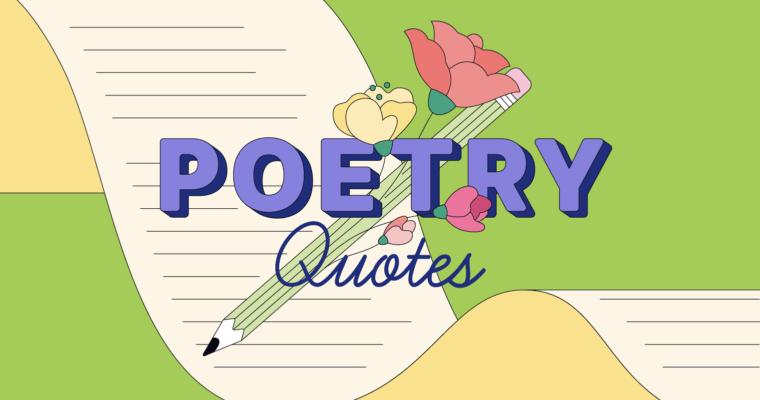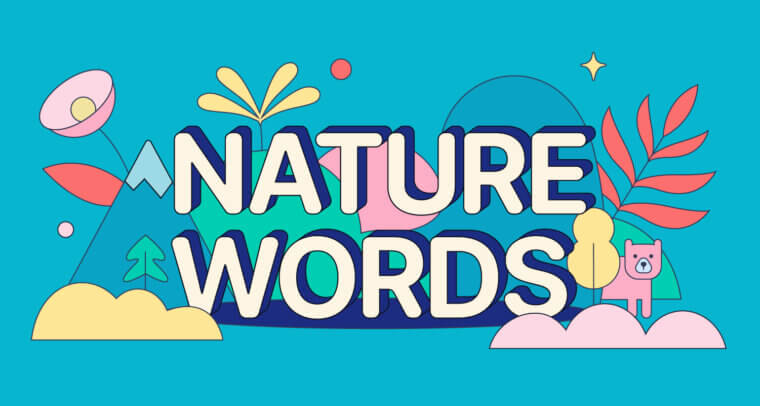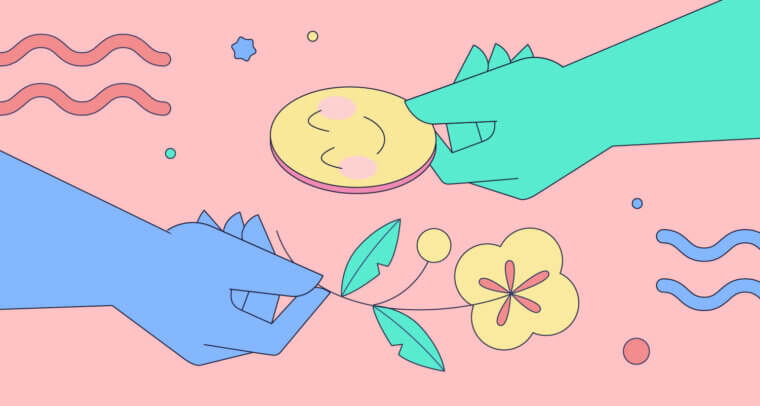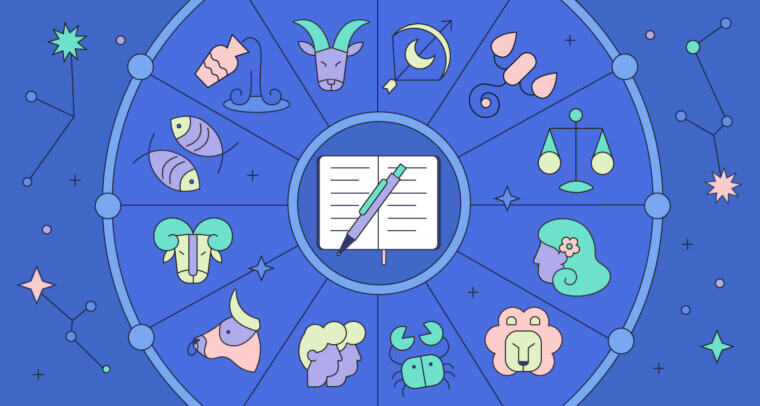
If there’s one trait that the best poets have in common, it’s the ability to express emotions and thoughts in a way that sticks with the reader or listener. It’s no surprise that poets are so easily quoted in such memorable ways.
As you read these poetry quotes, you’ll notice that many of them employ figurative language like metaphor and simile, the creative language tools poets use to write richer, deeper poems. You’ll also notice literary devices like imagery and personification, which are the natural language of poets and, as you’ll see, an effective way to enliven just about any kind of communication.
The following quotes are meant to enrich your day, spark your imagination, and perhaps inspire you to think poetically about your own experience:
Motivating poetry quotes
When you’re stuck in a writing rut, reading quotes from other writers can help you break through the block and get writing again. Read these inspiring words poets have shared with readers and other writers:
1 “As I write, I create myself again and again.” —Joy Harjo
2 “Poetry is perhaps what teaches us to nurture the charming illusion: how to be reborn out of ourselves over and over again, and use words to construct a better world, a fictitious world that enables us to sign a pact for a permanent and comprehensive peace . . . with life.” —Mahmoud Darwish
3 “Take your materials from what is around you—if you see a dandelion, write about that; if it’s misty, write about the mist. The materials for poetry are all about you in profusion.” —Masaoka Shiki
4 “I guess what concerns me always is the need for a field, a rich compost, for any art to flourish. But however isolated or unheard you may feel, if you have the need to write poetry, are compelled to write it, you go on, whether there is resonance or not.” —Adrienne Rich
5 “Poetry is not only dream and vision; it is the skeleton architecture of our lives. It lays the foundations for a future of change, a bridge across our fears of what has never been before.” —Audre Lorde
Funny and irreverent poetry quotes
Poetry can be deep, poetry can be provocative, poetry can be paradigm-shifting, and poetry can be something else, too: funny. Sometimes, poetry can be all of these things at once. So can quotes about poetry. Check out these quotes, some funny, some irreverent, and some both, that take you inside the mind of a poet:
6 “Poets are never unemployed, just unpaid.” ―Kathy Skaggs
7 “Poets have been mysteriously silent on the subject of cheese.” ―G.K. Chesterton
8 “I’ve been reading poetry publicly for 20 years, and this is what you do—you express, you sometimes dig a bit to get a conversation started. That’s the point of poetry. You’re supposed to go, ‘Hmmmm,’ and ‘Wooo!’” —Jill Scott
9 “Poetry uses the hub of a torque converter for a jello mold.” —Diane Glancy
10 “Poetry is the art of creating imaginary gardens with real toads.” —Marianne Moore
11 “Poetry is a deal of joy and pain and wonder, with a dash of the dictionary.” —Kahlil Gibran
Succinct poetry quotes
One of poetry’s hallmarks is that it uses language economically. While a piece of fiction might describe a character in a paragraph or two, a poem might do so in a line.
Some of the best poetry quotes are works of poetry themselves: They keep it short and use a small number of words to communicate big ideas. Take a look at how poets use their poetic skills even when they’re not writing poetry:
12 “Every single soul is a poem.” —Michael Franti
13 “Raise your words, not your voice. It is rain that grows flowers, not thunder.” —Rumi
14 “A poem is a small (or large) machine made out of words.” —William Carlos Williams
15 “Poetry is such an ancient art, and I consider myself young within that art.” —Allison Joseph
16 “To read a poem is to hear it with our eyes; to hear it is to see it with our ears.” —Octavio Paz
17 “Poetry comes alive to me through recitation.” —Natalie Merchant
Long-form poetry quotes
On the flip side, sometimes you need a lot of words to communicate your message. These poetry quotes are longer, meatier, and can feel like poems themselves:
18 “Words are delicate instruments: How to use them so that, after having read the poem, the taste remaining is not of the words themselves, but of a thought, a situation, a parallel reality? If not used appropriately, words in poetry are like the ugly remains of food after eating. What I mean is that readers will reject words if they don’t serve to shift attention from themselves to somewhere else.” —Luljeta Lleshanaku
19 “To me, [poetry is] a recreation, a renewal of language . . . The subtlety of what words mean and the fact that you write something and all of a sudden you’ll realize that ‘yes, it reaches out. It meant that, too.’ Then all of a sudden you’ll get a rhyme and the rhyme will throw up a whole new way of looking at things. It’s this relationship that you never dreamed of. A poem really does recreate the language, and that’s what it has to do. A true poem, I think, has to give you that shiver. That, ‘yes, it’s never been said quite that way before.’” —Mary Ann Hoberman
20 “I think poetry has no investment in anything besides openness. It’s not arguing a point. It’s creating an environment. Whereas if you were writing an op-ed piece or an essay, somebody would be asking, ‘What’s your point?’ With poetry you can stay in a moment for as long as you want. Poetry is about metaphor, about a thing standing in for something else. It’s the thing that opens out to something else. What that something else is changes for readers. So what’s on the page—it falls away.” —Claudia Rankine
21 “My discipline is the take-no-prisoners language of good poetry, but a language that actually frees us from prejudice, no matter what religion or political persuasion they are. I try to create a river-like discourse. The river is not political, it’s not on your side or against you. It’s an invitation into the onward flow.” —David Whyte
22 “From the beginnings of literature, poets and writers have based their narratives on crossing borders, on wandering, on exile, on encounters beyond the familiar. The stranger is an archetype in epic poetry, in novels. The tension between alienation and assimilation has always been a basic theme.” —Jhumpa Lahiri
23 “I didn’t start writing songs, honestly, until I started making my album. I was always doing poetry, but I never thought I could write songs. I discouraged myself and thought it was so hard. But starting this process and learning just what it is to be a songwriter and performer taught me that you don’t have to feel discouraged about anything. You don’t even have to follow any rules.” —Alessia Cara
Provocative poetry quotes
Perhaps Joyce Carol Oates said it best: “My belief is that art should not be comforting; for comfort, we have mass entertainment and one another. Art should provoke, disturb, arouse our emotions, expand our sympathies in directions we may not anticipate and may not even wish.” When you’re reading poetry, you’re meant to feel something. Many well-known poetry quotes directly address this aspect of the form:
24 “My weapon has always been language, and I’ve always used it, but it has changed. Instead of shaping the words like knives now, I think they’re flowers, or bridges.” —Sandra Cisneros
25 “Poetry is man’s rebellion against being what he is.” —James Branch Cabell
26 “Poetry is a political act because it involves telling the truth.” —June Jordan
27 “Poetry helps me understand who I am. It helps me understand the world around me. But above all, what poetry has taught me is the fact that I need to embrace mystery in order to be completely human.” —Yusef Komunyakaa
28 “On the one hand poetry is useless. It can’t change the world materially. On the other hand it is a basic part of human existence. It came into the world when humans did. It’s what makes human beings human.” —Bei Dao
29 “Because, in fact, women, feminists, do read my poetry, and they read it often with the power of their political interpretation. I don’t care; that’s what poetry is supposed to do.” —Diane Wakoski
30 “People in power tend to find poetry dangerous to them because it is dislocating, they can’t catch it, can’t control it. They prefer coherence, what’s blunt and has clarity.” —Elia Suleiman
Give your writing spark
When you’re writing poetry, sometimes you need to break conventional grammar rules to maintain your poem’s rhythm, rhyme scheme, format, or simply to communicate its theme more effectively. But in order to artistically break the rules, you need to know the rules. That’s where Grammarly comes in. Grammarly catches spelling, syntax, and punctuation mistakes and offers suggestions to fix them. With these suggestions, you can decide where you want to make changes—and where you want to break the rules.






